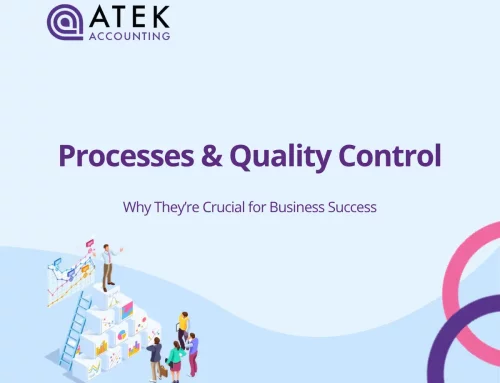
With high energy and food prices, elevated inflation, rising interest rates, and global economic weakness, the Bank of England is expecting the UK economy to be in recession until the middle of 2024 – the longest recession in history. As is often the case, small businesses are likely to feel the biggest impact, which is why it’s vital to recession-proof your business.
Here’s How to Recession-Proof Your Business:
1. Stay On Top of Your Financials
Preparation starts with awareness. You should make it a habit to check your finances every day. You need to have accurate knowledge of your financial situation to make a feasible plan during a recession.
It’s a good idea to use a Key Performance Indicator (KPI) system to understand which practices generate the most return on investment and which expenses you can spare. Understanding which costs are most worthwhile will allow you to prune your business when necessary. Besides, cutting costs that don’t add to your profit is an excellent way to set your company in good stead. The fewer financial burdens you have during a recession, the better.
2. Minimise Operating Costs
Tempting though it might be to splash out on swanky new office furniture or upgrade your coffee machine, these items aren’t really necessary. In a recession, it’s crucial that you keep costs to a minimum and reduce discretionary spending.
Of course, it’s a balancing act. If you’re overzealous about cutting costs, you’ll damage your own productivity in the process. For example, it’s okay to repair or replace a damaged item in your office, but don’t make frivolous upgrades for aesthetic purposes. Carefully consider the return on investment of each cost to optimise your profits.
3. Improve Your Credit Score
It’s difficult to secure a loan during a recession, and you’ll need an excellent credit score. The problem is that it’s pretty difficult to improve your rating when times are hard. Start working on your credit score now to put yourself in the best possible position should you require a loan to keep your small business afloat. Don’t limit your efforts solely to your business; it’s worth making sure your personal credit score is as high as possible, too.
Here are some straightforward ways to improve your credit score:
- Pay your bills on time.
- Reduce existing debts as much as possible.
- Regularly check for fraudulent activity.
- Only use credit when it’s really necessary.
4. Focus on Marketing
Marketing matters more than ever in a recession. You might be tempted to slash your marketing budget, but this mistake could prove fatal for your business. It’s vital to maintain brand awareness and let your customers know that you’re still here to serve them. Don’t let them forget about you. Stay in their minds, and they’ll return once their situation improves.
It’s always worth re-appraising your marketing. Analyse previous campaigns and weigh up which ones worked best for your business. You may be able to forfeit a few practices that aren’t serving you, but ensure that you continue to concentrate on what works best for your business.
5. Retention Over Acquisition
During a recession, your existing customers are the most valuable to you. It’s fine to market to new customers, but when hard times hit, prioritise customer retention over acquisition. Not only do repeat customers tend to spend more, they also help to drive customer acquisition by recommending your products or services to their friends and family. In short, when times are tough, you need to look after the people who look after you.
After-sales assistance, social media engagement, and special discounts are all great ways to take care of your regulars. Make them feel valued and appreciated, and they’ll keep coming back. Beyond that, work on gaining insight into the customer experience so that you can continue to provide excellent service even as times change.
Is Your Business Recession-Proof?
Preparing for a recession doesn’t have to be complicated. The sooner you act, the better you’ll be able to safeguard your business. We can’t change the recession, but we can take action to protect your business. Get started today.
More resources:













